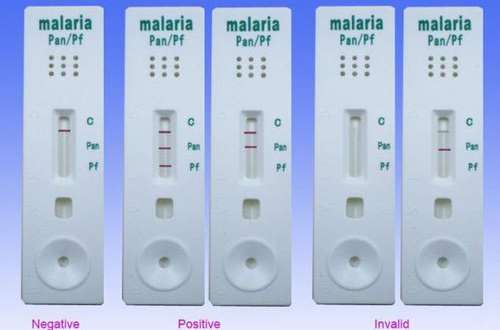![]()

Noguchi Memorial Institute calls for urgent need for sensitive rapid diagnostic tools
The Noguchi Memorial Institute for Medical Research (NMIMR) is working with partners to evaluate the sensitivity of a variety of new malaria Rapid Diagnostic Test (RDT) Kits.
The institute is also actively involved in the research and development of highly sensitive tools for malaria diagnosis.
In a statement issued by the institute to mark World Malaria Day which was observed on April 25, it said prompt malaria treatment could save lives, however, that was reliant on accurate and timely diagnoses of the infection.
“Microscopy is the gold standard for malaria diagnosis, however, it requires specially trained persons and a reliable source of electricity.
Malaria rapid diagnostic test kits (RDTs) are rapid, very user-friendly and presently the most widely used diagnostic tool for malaria in Ghana.”
However, the statement said infections containing low parasite densities could be missed by both microscopy and the conventional RDTs, resulting in delayed treatment.
The statement, therefore, called for an urgent need for more sensitive rapid diagnostic tools.
World Malaria Day
World Malaria Day is celebrated annually to commemorate control efforts against malaria which have the overall goal of eradicating the disease.
African governments have since 2001 observed the day, commemorated as “African Malaria Day” as a reminder of the presence of this debilitating infection and of control measures that needed to be upheld or enhanced to eliminate malaria from the African region.
The World Health Assembly in 2007, however, suggested that the day should be commemorated globally and, therefore, had the name changed to “World Malaria Day” after which it had been observed since 2008.
This year, the theme for the World Malaria Day by the World Health Organisation is “Harness innovation to reduce the malaria disease burden and save lives” whilst the Global Fund is celebrating the day on the theme, “Advance Equity. Build Resilience. End Malaria”.
Malaria situation in Ghana
The statement said between the years 2000 and 2019, global control efforts resulted in a 27 per cent decrease in malaria cases and a 67 per cent decrease of deaths associated with malaria.
However, in 2020 alone, it said 241 million cases and 627,000 malaria associated deaths occurred, representing five per cent and 12 per cent increase over 2019 respectively.
In Ghana, it said, close to 5.9 million people were diagnosed with malaria in 2020, and that it demonstrated the need to increase malaria control efforts; a call which required more innovation, research, funding and commitment by stakeholders to this course.
What research is NMIMR doing?
Among the many research work the institute was engaged in to control malaria, the statement said the institute was working with blood samples from persons in a Ghanaian community where malaria was very prevalent and had so far identified about 135 such T ell epitopes that could trigger potent immune responses.
It said it had selected some of these epitopes to make the first batch of five multi-epitope vaccines on self-assembling nanoparticles. Preliminary data emanating from testing of these vaccines in transgenic mice that expressed human HLA to show a good response profile to some of the epitopes.
It said it hoped to, in the near future, begin human testing of the best of these vaccine constructs.
On development of antimalarial drugs, the statement said the Institute in collaboration with the Chemistry Department of the University of Ghana and other partners had recently obtained funding from the Bill and Melinda Gates foundation to improve existing drug discovery capabilities in Ghana.
“The Institute also provides data on the durability and effectiveness of the long-lasting nets deployed in the country to control malaria vectors, monitoring of vector control programmes on the vector behaviour and impact on malaria transmission in the country as well as evaluating new and novel malaria vector control tools,” it stated.
